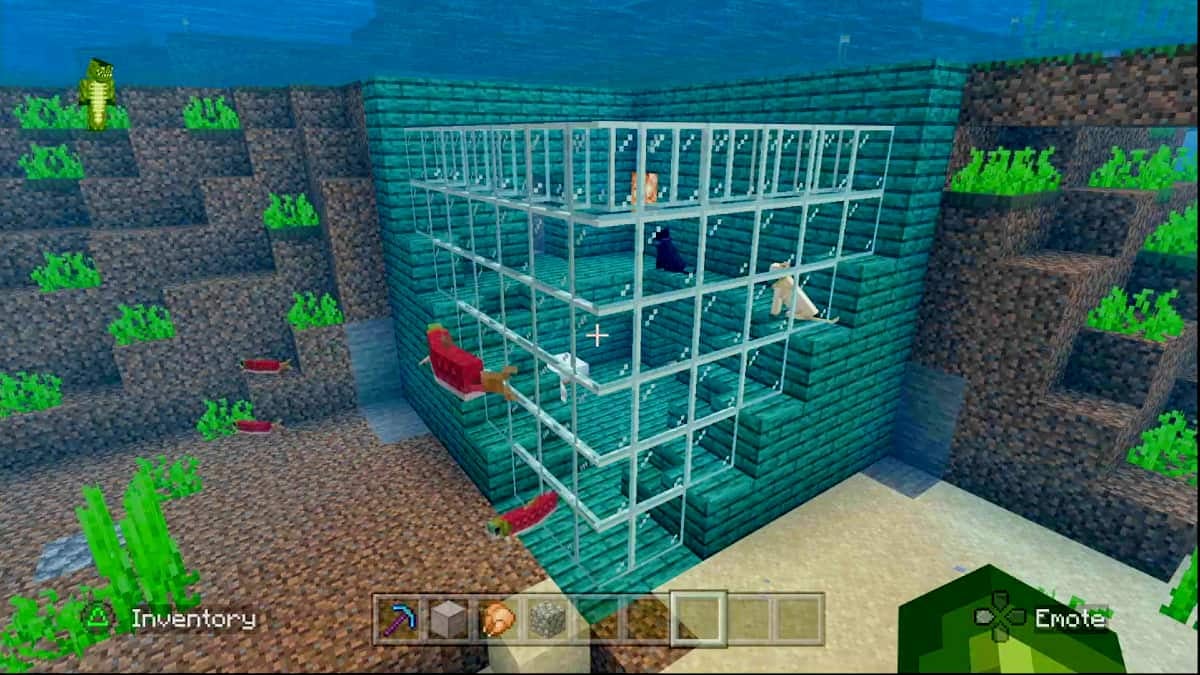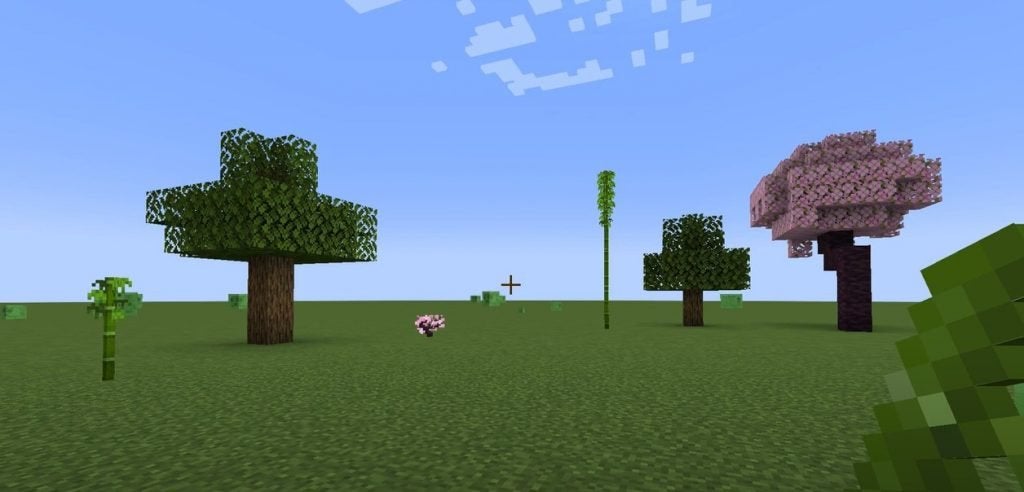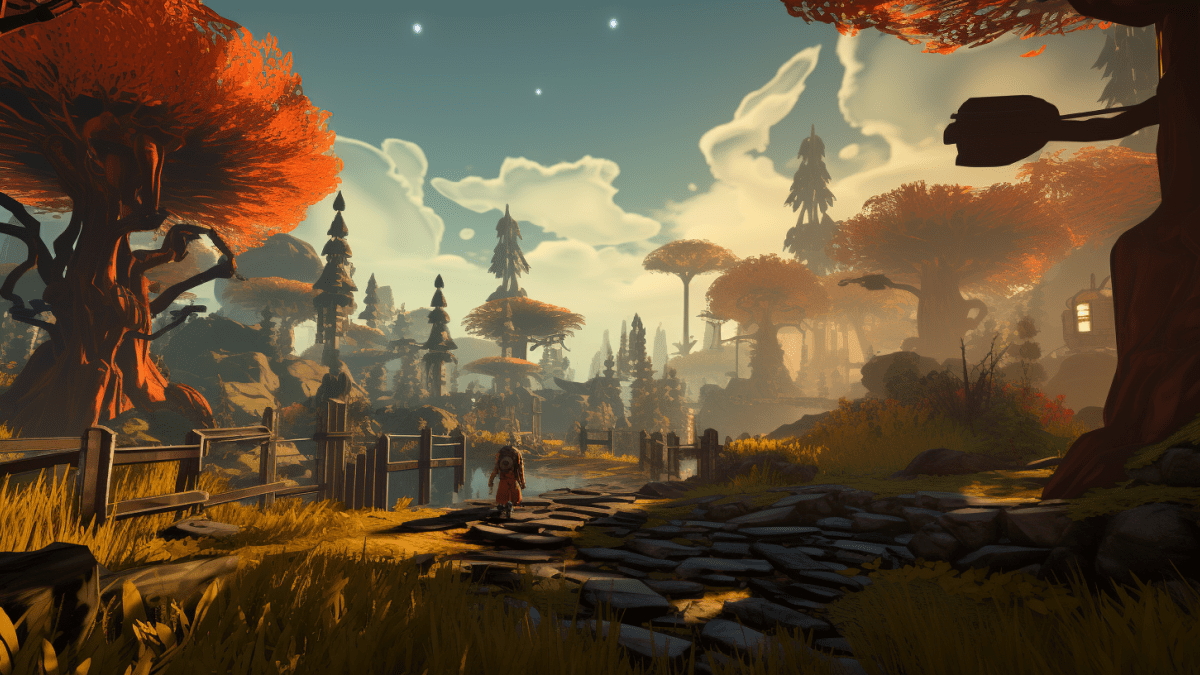![]() Key Takeaway
Key Takeaway
Emergent Gameplay is a dynamic gaming experience where unique, unplanned scenarios arise from the complex interaction of a game’s mechanics, environment, and player choices—leading to highly personalized and unpredictable gaming moments.
The concept of emergent gameplay represents more than just a gaming buzzword. It’s a fundamental shift in how we experience interactive media. Emergent gameplay is where the game’s script ends and the player’s creativity begins. It’s the difference between playing a story and being an active participant in creating it.
Table Of Contents
What Is Emergent Gameplay?
Emergent gameplay refers to those unique, unplanned experiences that arise in a game due to the complex interplay of game mechanics and player actions. It’s not something the game developers explicitly program into the game; rather, it emerges (hence the name) organically as players interact with the game world and each other.
You can think of emergent gameplay as those “wow, I didn’t expect that to happen” moments in gaming. These moments aren’t scripted or pre-designed. They spontaneously occur based on various factors like player creativity, game rules, and the dynamic gaming environment. It’s like when you’re playing a strategy game, and you devise a plan so clever that even the game seems surprised by your ingenuity. Or in a multiplayer game, when players collectively create an event or scenario that was never intended by the game’s creators.

Emergent gameplay in modern gaming is a big part of what makes games replayable and engaging over the long term. When a game supports emergent experiences, it allows players to explore and experiment, leading to unique stories and experiences that can be vastly different from one player to another.
This kind of gameplay keeps players coming back for more, constantly discovering new layers and possibilities within the game world. It’s a testament to the ingenuity of both game designers and players, creating a symbiotic relationship where each feeds into the other’s creativity.
Emergent Gameplay vs. Scripted Gameplay
Scripted gameplay is like a well-trodden path through a forest. It’s predefined, predictable, and controlled. The game leads you through a series of programmed events and scenarios. Your experiences are largely the same as those of every other player. It’s the traditional narrative-driven approach where the game’s story unfolds in a set sequence of events, irrespective of the player’s actions.
Emergent gameplay is like wandering off that path into the uncharted woods. It’s less about following a story and more about creating it. In emergent gameplay, the player’s decisions genuinely matter, often leading to a cascade of consequences that the game’s creators might not have anticipated. It’s less predictable, more dynamic, and provides a personalized experience that can vary widely from player to player.
Emergent Gameplay Mechanics, Defined

Emergent gameplay revolves around three key elements: the game’s rules, the environment, and the player’s actions. The game sets the stage with a set of rules and mechanics. These are the constants, the non-negotiables that provide a framework for play. Then there’s the environment—the virtual world where the game unfolds, filled with elements that can interact with each other and with the player. Finally, and most importantly, there are the players themselves, each bringing their own decisions, strategies, and interactions to the mix.
The magic of emergent gameplay happens when these elements collide and intertwine. It’s a bit like a chemical reaction. The game provides the substances, but the reaction can’t happen without the player acting as a catalyst. When a player’s actions start interacting with the game’s rules and environment, unexpected outcomes start to emerge. These outcomes aren’t scripted or planned by the game developers. They naturally arise from the complex interplay of the game’s systems and the player’s input.
Examples of Emergent Gameplay Mechanics
- Sandbox Environments: These are open-world settings where players can freely explore and interact with the environment. Games like Minecraft or Terraria are perfect examples. They offer a playground where almost anything can happen based on how players choose to interact with the game world.
- Dynamic AI Systems: When non-player characters (NPCs) in a game can react in varied and unpredictable ways, it adds depth to the gameplay. Dynamic AI can lead to unique player experiences, as NPCs respond differently based on player actions.
- Complex Systems Interaction: Games that feature multiple, interlocking systems (like weather, economics, or ecology) create a rich tapestry for emergent gameplay. For example, in a simulation game, altering the local economy might inadvertently affect the social dynamics in unexpected ways.
- Player Creativity Tools: Features that allow players to create, modify, or customize aspects of the game empower them to be co-creators of their experience. This can range from building structures to creating mods or even designing in-game content.
- Procedural Generation: This is a technique where parts of the game (like levels, maps, or items) are generated algorithmically rather than manually crafted. This ensures that each player’s experience can be unique, as they encounter different game worlds or scenarios.
Video Games With Emergent Gameplay
Emergent gameplay enhances the player experience by injecting a sense of unpredictability and personalization into games. Here are a few games that offer a rich emergent gameplay experience.
- Minecraft: This game is practically the poster child for emergent gameplay. With its open world and block-building mechanics, players have created everything from simple houses to complex computers. The game sets the stage, but it’s the players who bring it to life in ways the developers never specifically programmed.
- The Sims: Players control the lives of virtual people, making decisions that affect their world and relationships. The emergent aspect comes from the unpredictable interactions between the Sims, governed by a set of complex behavioral rules. You might set up a scenario, but how it plays out can be surprisingly unexpected.
- Dwarf Fortress: Known for its depth and complexity, this game features a world that evolves over time with or without player input. The emergent narratives that come from the interactions between the game’s systems and the player’s actions are often as bizarre as they are fascinating.
- Grand Theft Auto V: While it has a strong narrative, the open-world design allows for emergent gameplay. Players can interact with the game world in unforeseen ways, leading to unique scenarios that blend scripted and emergent elements.
Emergent gameplay extends the life of a game far beyond its initial release. Players keep coming back, not just for more of the same, but for the potential of something new every time they play. It turns games into evolving worlds, where the unexpected is the norm and the predictable is passé.
It shifts the role of the player from a passive consumer to an active creator. Players are not just following a story; they are writing it.


